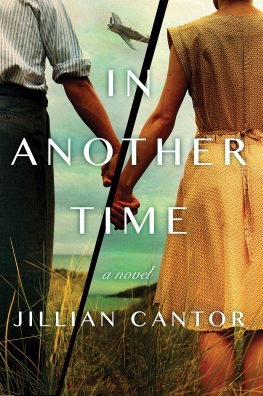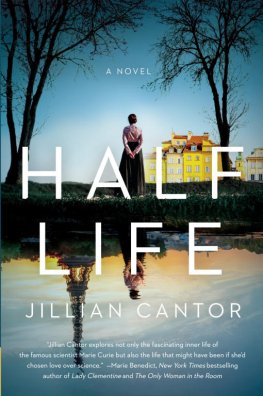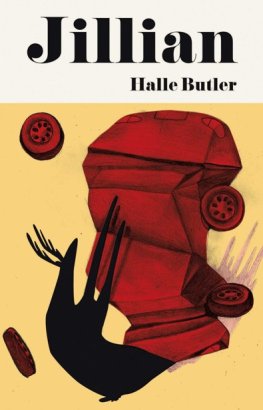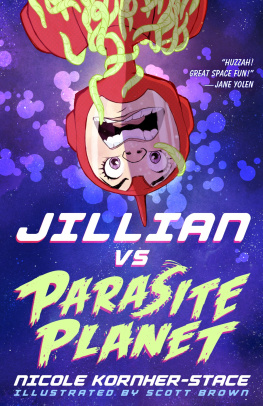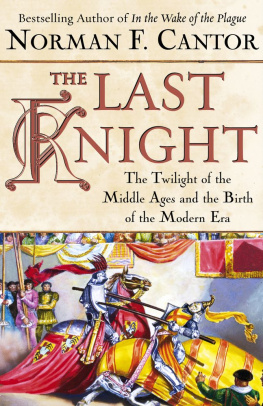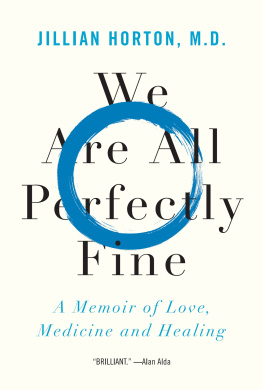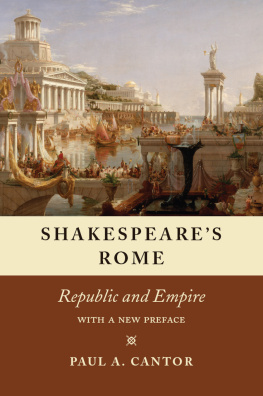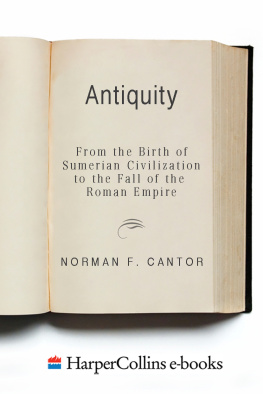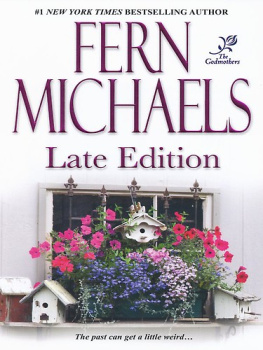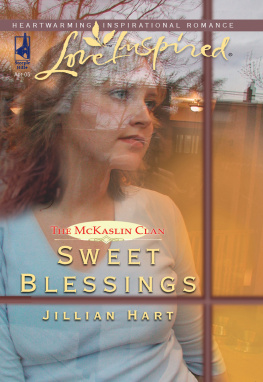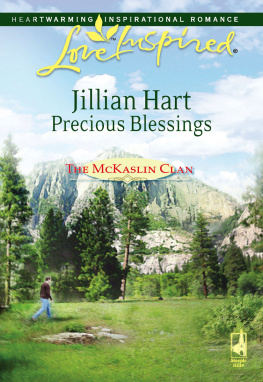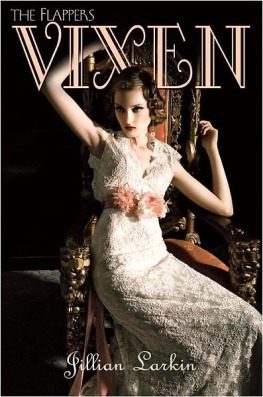Jillian Cantor - In Another Time
Here you can read online Jillian Cantor - In Another Time full text of the book (entire story) in english for free. Download pdf and epub, get meaning, cover and reviews about this ebook. year: 0, genre: Art. Description of the work, (preface) as well as reviews are available. Best literature library LitArk.com created for fans of good reading and offers a wide selection of genres:
Romance novel
Science fiction
Adventure
Detective
Science
History
Home and family
Prose
Art
Politics
Computer
Non-fiction
Religion
Business
Children
Humor
Choose a favorite category and find really read worthwhile books. Enjoy immersion in the world of imagination, feel the emotions of the characters or learn something new for yourself, make an fascinating discovery.
- Book:In Another Time
- Author:
- Genre:
- Year:0
- Rating:4 / 5
- Favourites:Add to favourites
- Your mark:
- 80
- 1
- 2
- 3
- 4
- 5
In Another Time: summary, description and annotation
We offer to read an annotation, description, summary or preface (depends on what the author of the book "In Another Time" wrote himself). If you haven't found the necessary information about the book — write in the comments, we will try to find it.
In Another Time — read online for free the complete book (whole text) full work
Below is the text of the book, divided by pages. System saving the place of the last page read, allows you to conveniently read the book "In Another Time" online for free, without having to search again every time where you left off. Put a bookmark, and you can go to the page where you finished reading at any time.
Font size:
Interval:
Bookmark:
For Gregg, the reason I write love stories
The time is out of joint: O cursd spite, That ever I was born to set it right!
Hamlet, Act I, Scene V
Hanna, 1958
I havent told Stuart the whole truth about where I came from. Because for one thing, he wouldnt understand. How could he, when I dont really understand it for myself? And for another, even if I did tell him, he wouldnt believe it. He would frown, and his blue eyes would soften, crinkle just around the edges, illuminating both his age and his kindness. Oh, my dear, he might say, as Sister Louisa once did, after Id stumbled into the last-standing church in Gutenstat, freezing cold and sick with thirst and hunger.
Sometimes, even now, I wonder if I made it all up. If Max, too, was just a dream, a figment of my imagination. Impossible, like all the rest of it.
You have been through a trauma, Sister Louisa reminded me, after I first saw the doctor in Berlin. Your mind plays tricks to protect you.
And it was a strange thing, but when Sister said it, I almost believed her. How could she be wrong, after all? This nun with her wrinkly face, pale as snow, and light gray eyes, with her habit and her soft smile. She wouldnt lie. Then she pointed to my violin in my hand. Can I hear you play, my dear?
She touched my Stradivari. Id had it since my sixteenth birthday, an extravagant present from Zayde Moritz, just before he passed. I was holding it when I came to in the field. Id held it playing for Max, in the bookshop once, too. And sometimes the only thing to me that still feels real, even now, is my violin.
I have played the violin since I was six years old, and it has always felt a part of me, another limb, one that is necessary and vital to my daily survival. My violin connects my present and my past, my dreams and my reality. My fingers move nimbly over the strings, my mind forgetting all Ive lost or forgotten. There is only the music that is my constant companion. Nothing but the music. Not Stuart. Not Max. Not now. Not the past, either.
Hanna, Stuart interrupts me today. Ive etched the date, November 6, 1958, in pencil at the top of my music, so I know it is real, so I dont forget. I do this every single day and have since I was living in London with Julia. While I sometimes still forget how old I am now, my fingers do not move as they used to. Some days my knuckles swell, and I must cover them in bags of ice when I get home after practice. I hide this from Stuart, too, like so much else.
Today, Im practicing at the conservatory, as I do every day after the group rehearsal. The orchestra will tour again in the spring. Well go around Europe this time, playing Bach and Vivaldi and Holst. London, Paris, Berlin. As first chair violinist, I must play everything right, everything perfect. Though I already know all the music well, it is not enough. I have to breathe it, too. It has to sink into my skin, into my memory, so I will never ever forget it, a sweet perfume that lingers on and overtakes all my senses.
When Stuart walks in, I rest my violin on my knee and smile at him. Dear, sweet Stuart who brought me into the orchestras fold five years ago. Hes ten years older than I am and would like nothing more than to marry me. Which he has told me on more than one occasion. But I laugh and pretend as though I believe him to be joking, though we both know hes not. Youre an old soul, he told me once, as if trying to explain away our age difference. It was only then that Id thought: Maybe Stuart really does know me?
Hanna, he says now. You have a friend here to see you.
My world in New York City is a bubble. Rehearsal and practice. I live alone in a one-bedroom apartment in Greenwich Village, and though I am friendly with nearly everyone in the orchestra, I wouldnt call any of them dear friends. Only Stuart. And its only because he thinks he loves me, thinks he understands me. It must be some mistake, I tell him, bringing the violin back to my chin.
No mistake, Stuart says. He asked for Hanna. He said the girl who plays violin like fire. Stuart laughs. His eyes crinkle. He is both amused and stricken by the accuracy of the description.
Once, so many years ago, when I was insisting I would have to give it all up, that I had ruined everything, Max had told me that I would have other auditions. Other orchestras. And youcant give up, hed told me. You play the violin like fire, Hanna.You cant give up on your fire.
Max heard Hanna before he saw her. Rather, he heard her violin as it pierced through the empty auditorium at the Lyceum: sharp and bright, passionate and enormous. Hed never heard a violin before other than maybe once on a record playing on his mothers phonograph when he was a boy. And the sound in real life, echoing in the large empty room, was so beautiful and intense that, for a moment, Max froze.
Max had opened the door to this particular auditorium quite by accident. Hed been looking for Herr Detweilers lecture on economics, which, as it turned out, was taking place in a different auditorium, in a building across the green. The Lyceum in Gutenstat was large, sprawling. Max had read the schedule wrong and had reversed his course, landed himself exactly opposite where hed intended, here, instead, where Hanna was practicing onstage.
He walked toward her, toward the music. Her eyes were closed, and she was small but her body swung with the notes she played, a force like a giant gust of wind that bowled her back and forth, and yet would never topple her. No. She was in control of the music, of the instrument. That much was clear to him. Even knowing nothing about music, about the violin. This woman possessed this music. Not the other way around.
She finished with one hard downward sweep of the bow, and then she opened her eyes, saw him standing there, not ten feet from the stage now, because hed walked closer and closer as hed been listening. She put her hand to her mouth. Shocked? Alarmed? Angry?
Im... Im... sorry, he stammered. Ive gotten the wrong auditorium. He suddenly felt foolish for having invaded her space. It wasnt a performance; her music this morning had been meant to be private. And feeling like an intruder, he turned and ran out.
It wasnt until he was across the green, walking into the correct building, that he realized he shouldve introduced himself, that he shouldve asked her name. Because the sound of that violin, her violin, he could not get it out of his mind.
Maxs father had owned a small bookshop in the center of Gutenstat, and when his heart stopped last spring, suddenly and all at once while he was in the middle of a conversation with a patron, Max had taken over the shop. His mother had died when Max was only ten, and so after his fathers death, there was no one else. Max had no choice but to continue running the shop. Even if he had, he wouldve chosen what was handed to him: he loved his fathers shopthe smell of the books, ink, paper, and binding glue, the patrons in the town who came in looking for stories and suggestions. Max felt a comfort in this life, the familiar town of Gutenstat where hed grown up, just an hour train ride west from Berlin. But the bookshop was quieter than it had once been, and that was why Max had enrolled in Herr Detweilers economics lecture. It had occurred to him more than once that he might not be able to run the bookshop forever, that he might need to learn something else. And an economics class had felt like a good place to start. At the very least it might give him some help in keeping the bookshop afloat.
He slipped into the correct auditorium in the middle of Detweilers lecture, trying not to draw attention to himself now. Most of the seats were taken, and in the front of the room, Detweileran older, overweight balding man with spectacleswas talking animatedly, scribbling an equation on a chalkboard. People all around Max listened intently, took notes. And he tried to follow the lecture. It had been a few years since hed been in school, and truth be told, hed always enjoyed literature so much more than math and science. His mind drifted back to the woman across the green, playing the violin. If he went back, could he still catch her? He wanted to ask her name, ask her if she liked books, or coffee. Yes, he would invite her to coffee.
Font size:
Interval:
Bookmark:
Similar books «In Another Time»
Look at similar books to In Another Time. We have selected literature similar in name and meaning in the hope of providing readers with more options to find new, interesting, not yet read works.
Discussion, reviews of the book In Another Time and just readers' own opinions. Leave your comments, write what you think about the work, its meaning or the main characters. Specify what exactly you liked and what you didn't like, and why you think so.

